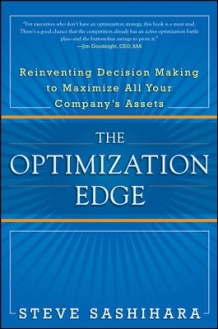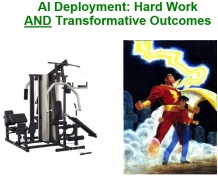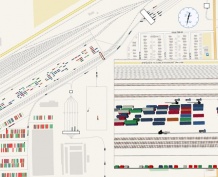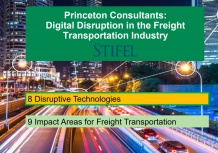Once you have a working optimization prototype program that has been tested and embraced by one or more users under field conditions, it is time to roll out the program to the organization and be sure that the right people are using it daily. Because the best optimization opportunities address decisions that are made repeatedly across the organization, scaling up often means motivating and training a large group of dispersed people.
The Optimization Edge
A Blog for Business Executives and Advanced Analytics Practitioners
Technologies: Data Science, Big Data, Optimization, Machine Learning, Artificial Intelligence, Predictive Analytics, Forecasting
Applications: Operations, Supply Chain, Finance, Health Care, Workforce, Sales and Marketing


Occasionally we highlight services and solutions from outside our Optimization Practice.
A regional business insurance broker’s risk control division sought a new-generation software application and automated process to audit businesses for risk and provide mitigation recommendations. Traditionally, inspectors traveled to sites and filled out paper checklists, took many photos on digital cameras and uploaded them to a local computer, transcribed information into a web browser, exported to Word document reports which required additional manual modification and layout changes, and finally emailed the final report to clients. This process was supported by an internal software application that had become outdated, unstable, had frequent downtime, and was inadequately supported.

Buyers and sellers of software assets often require thorough due diligence performed rapidly—as little as two weeks. Technical and business skills are both critical to conduct such evaluations. If the system and its interdependencies are highly complex, advanced automated software tools assist the review. Based on assessments conducted over 40 years, Princeton Consultants has established a methodology that blends management consulting and software development expertise, as seen in two recent cases.

Following is a lightly edited excerpt of Steve’s presentation at the Joint Mathematics Meeting in January 2021, part of a special session, “Transformation Through Advanced Analytics.”
I am pleased to be speaking on the topic of The Princeton 20: the most common risk factors in implementing optimization AI into production. As we discuss project risk, the spoiler alert is: it’s usually not the math.

We define optimizing simulation as the application of optimization principles to simulation, taking it from predictive analytics to prescriptive analytics. Optimization is layered on top of inputs and a simulation to determine optimal policies, decisions, and even operating parameters based on key KPIs. This allows us to simulate environments, facilities, and different decisions that people need to make, but also to optimize those scenarios.

In the electric utility industry, an Independent System Operator (ISO) coordinates and directs the flow of electricity over a region’s high-voltage transmission system. Like an air traffic controller, an ISO oversees the daily operation of the power grid.

Steve is a frequent guest on Sirius XM Radio’s Road Dog Trucking, hosted by Mark Willis. Following is a lightly edited excerpt from his April 1 appearance.
Steve Sashihara: Fortuitously, we added electric trucks to our survey this year. The president’s proposed infrastructure plan is very heavy on electric vehicles, and I think trucking will get its share.
Mark Willis: Let’s talk about that. What did the numbers look like from the survey respondents? Was it better or less than 50 percent that EVs will have a moderate impact by maybe four or five years from now?

In a webinar with Stifel Managing Director of Research David Ross, Steve presented the results of our annual survey of transportation executives. Following is a lightly edited excerpt.
This year, we were pleased to get 126 responses, about half from executives at carriers, 3PLs and brokers. For eight disruptors, we asked “By 2025, will it have 1) essentially no real impact on freight transportation? 2) limited impact in small niches? 3) moderate impact, particularly at the high end? Or 4) a large impact and be very common?”

We recently presented our work with Birchbox, the premier beauty subscription service, to a panel of judges for the INFORMS Wagner Prize for excellence in the practice of operations research and innovation in mathematics and advanced analytics. One judge asked how customer preferences and behavior are incorporated into the optimization model for product assortment.

As COVID-19 impacted the United States in the summer of 2020, universities struggled to plan for the return of live sports events at their stadiums and arenas. Ticketing and analytics groups at many major universities manually prepared seating plans for the fall football season based on assumptions of limited capacity in a safe environment, without knowing whether fans would be permitted or to what extent. If attendance were to be permitted, it was unclear how a venue could best host different sizes of pods of fans sitting together (most fans attend events with family, friends or classmates). Many universities opted to wait for a blanket software solution from a ticket service provider. The football season, which generates more than $4 billion in annual revenue for the top 65 universities, approached amid extreme health and regulatory uncertainty, and divergent local strategies.
